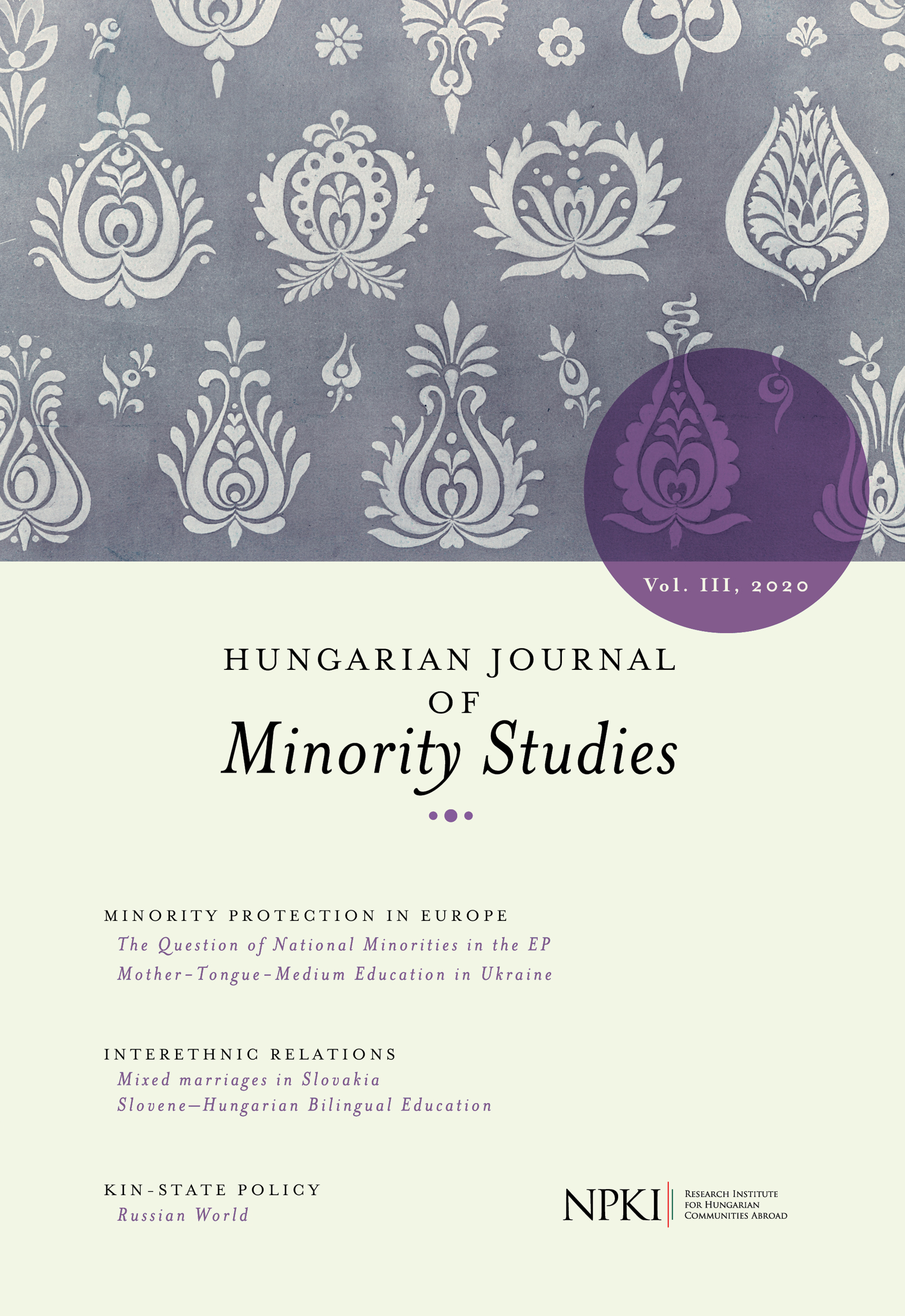The Question of National Minorities in the European Parliament Between 2014 and 2019: A Hungarian Perspective
The Question of National Minorities in the European Parliament Between 2014 and 2019: A Hungarian Perspective
Author(s): Krisztián ManzingerSubject(s): Politics / Political Sciences, Politics, Social Sciences, Political Sciences, Sociology, Government/Political systems, Inter-Ethnic Relations, EU-Approach / EU-Accession / EU-Development, Ethnic Minorities Studies, Politics and Identity
Published by: Nemzetpolitikai Kutatóintézet
Keywords: national minorities;Framework;ethnic;National Minority MEPs;
Summary/Abstract: The European Parliament, due to the direct election of the MEPs, is an institution willing to represent the interests of European national minorities and regional communities, compared to other EU institutions, with the exception of the Committee of Regions. During the 2014–2019 term, various questions of national minorities were discussed in the Minority Intergroup, which is an informal but officially recognized group of MEPs, and in the Committees of the Parliament. Individual MEPs, either alone or together with other colleagues, also organized events and conferences on minority topics. Despite the EU being generally reluctant when it comes to national minorities, the plenary of the European Parliament adopted important resolutions on the matter during the term, urging the European Commission to create an EU legal framework for protecting national minorities. While the events, conferences and resolutions did not lead to a breakthrough, even keeping the issue on the agenda is a success, in a milieu often hostile to discuss minority problems seen as offences to national sovereignty. Altogether, important steps forward are greatly needed to secure a more just, equal and citizen-friendly Europe; this is where discussions on minority issues within the EP, for instance, could foster improvement. Hungary is well-known regarding its interests in protecting national minorities. The country itself has a generous legal framework allowing for ethnic and national minority self-governance and is a strong advocate for the international regulation of minority rights overarching the existing system. Hungarian politicians, from both the kin-state and its neighboring countries, are also strong promoters of national minority rights within international organizations, for instance in the Council of Europe or the European Union (EU). Hungarian politicians are not the only ones keen to deal with national minority issues on an international level in Europe. The European Parliament (EP) has also long been advocating for enhancing the system of minority protection. In early 2014, the Strasbourg Manifesto, an act of stocktaking at the end of the mandate of the EP between 2009 and 2014, was adopted by the Minority Intergroup of the EP. It provided guidelines particularly for the MEPs, during the term between 2014 and 2019, and in general for the EU to improve the situation of autochthonous minorities within the EU. With the exception of the EP, EU institutions are mostly reluctant to address national minority issues arising in the Member States (MSs). This traditional position has even been strengthened further in the past term by particular events, such as the independence referenda in Scotland and Catalonia, the illegal annexation of Crimea and the occupation of eastern Ukraine by Russia, the migrant crisis of 2015 and the attacks targeting the civilian population in Western Europe. Nevertheless, in terms of protecting national minorities, there has been some progress in the EP; this article focuses on such developments. There have been other potentially far-reaching successes too, such as the victory of the Federal Union of European Nationalities (FUEN) and the Szekler National Council (SZNT) in front of the courts of the EU concerning their European Citizen’s Initiatives. They, however, lie outside the scope of our inquiry. In this article, the term “minority” exclusively refers to autochthonous national minority groups residing in MSs without taking into account their recognition or legal situation. Other types of minorities (i.e., sexual minorities) are outside of the focus of this article.
Journal: Hungarian Journal of Minority Studies
- Issue Year: 3/2020
- Issue No: 1
- Page Range: 7-30
- Page Count: 24
- Language: English

